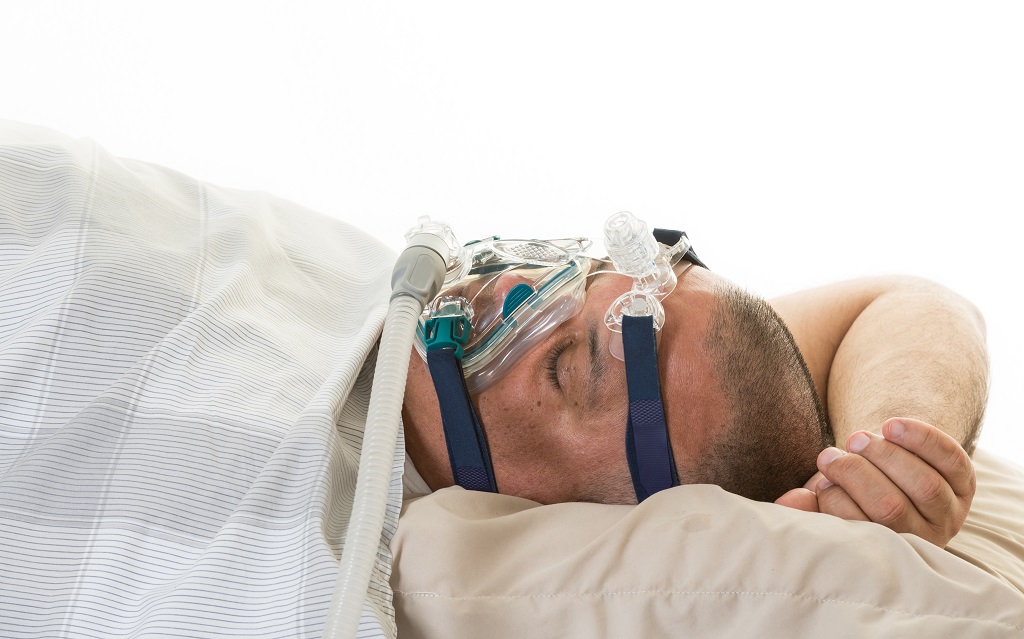
Sleep Apnea is a terrible condition that keeps millions of people from getting restful sleep, and can even increase the risk of other, greater health problems that could be deadly. Those who suffer from Obstructive Sleep Apnea may be as many as five times more likely to suffer from a serious heart condition. Least of all the worries about sleep apnea is the symptom of loud, disruptive snoring that might annoy your mate and family and prevent them from getting a good night’s sleep as well.
Fortunately, new research is constantly coming to light, giving way to new treatment options that can greatly alleviate the woes your sleep apnea has bestowed upon yourself and your family, and eradicate any resulting health concerns surrounding this unfortunate condition.
Diagnostics in Your Bedroom
The best way to determine what is causing the sleep apnea, as well as the best treatment options for you, is through participating in a sleep study. The good news is that with the advent of many new technologies, you can get a sleep study machine in your own home and conduct the tests in the comfort of your own bed. This is advantageous in more ways than just convenience; you’ll sleep normally in your own bedroom, leading to data collection that may be missed if you are being studied in a foreign place where you may not sleep as you usually do.
Home Sleep Study Equipment
While it may seem uncomfortable to take part in a sleep study regardless of where it takes place, there is no doubt that you will be more well-rested and supply more accurate data if you are sleeping in the familiar comfort of your own bed and home. You will achieve normal REM sleep, and the data collected will be thorough and true to the problem.
Home sleep study devices are easy to use and minimally invasive. Our top of the line equipment collects data about your sleeping habits and experiences that will help you and your doctor determine the problems causing your sleep apnea, including the type of obstruction, and thus develop a treatment plan that will effectively relieve you of this harrowing disease.
Treatment Options for Sleep Apnea
The most widely recommended, first line of attack approach for sleep apnea is a continuous positive airway pressure machine (CPAP), which is a mask that is worn while the patient sleeps and keeps a steady supply of oxygen flowing through the airway. The air pressure is uniform and strong enough to prevent a collapse that could constrict the flow of air to the patient’s lungs. Unfortunately, some people cannot tolerate either the tight fitting mask over their face as they try to sleep, or find the air pressure blowing into their nose to be too intense.
Oral Appliances
Oral appliances are slightly less imposing than a PAP machine and have grown in popularity in the last several years. The FDA has approved over 100 oral appliances to aid in sleep apnea and other sleep conditions, specifically those that involve snoring. Similar to a sports guard or other dental appliance, these oral appliances fit into the mouth over the teeth. They bring the lower jaw forward to help prevent the tongue and other mouth muscles from moving as the muscles relax in sleep and obstructing the airway. The result is a clear path for air to flow as the patient sleeps.
Oral appliances are a great start for sleep apnea treatments in patients who suffer from mild to moderate sleep apnea, although they can also be effective for severe patients. Another option is to use the oral appliance therapy along with PAP therapy for a two-pronged effort against sleep apnea.
Upper Airway Stimulation Therapy
Those with Obstructive Sleep Apnea do not usually benefit from the use of PAP therapy. Fortunately, a new method of treatment has been devised for those with severe sleep apnea who cannot benefit from PAP treatments. A small handheld sleep remote controls a small generator, a breathing sensor, and a stimulation lead. When the sensor detects signs that sleep apnea is occurring, key airway muscles are automatically gently stimulated to keep the airway open.
Weight Loss
A surprising majority of patients suffering from sleep apnea are experiencing the condition as a result of being morbidly obese. Although there is scant evidence to support that weight loss is a viable cure for sleep apnea, many doctors and patients have reported success with alleviating obstruction and snoring after the patient has lost significant amounts of weight.
Surgery
When all other treatment options have failed, many patients have found success in treating their sleep apnea through surgery. Especially in the cases of obstructed sleep apnea, removing the tissues or repositioning certain anatomical features can eliminate sleep apnea completely, giving everyone a better night’s rest.
VirtuOx is the leader in home sleep tests and pulse oximetry.
Click the link below to get more information plus to receive a FREE Report…